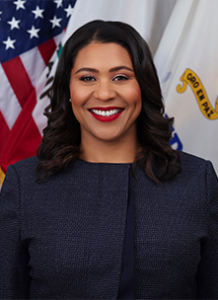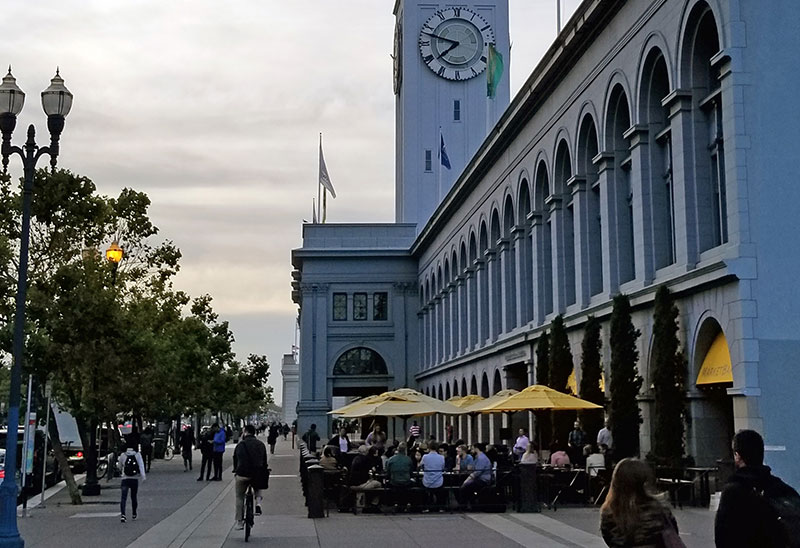
San Fran Mayor London Breed
San Francisco Mayor London Breed announced a temporary 15-percent limit on the fees third-party food delivery providers can charge restaurants here during the pandemic. San Francisco happens to be the home base of three of the four largest national delivery brands: DoorDash, Uber Eats and Postmates.
The cap will be in effect through the remainder of the local emergency, or until businesses are permitted to reopen for dine-in service, whichever comes first. It’s part of the city’s broader efforts to support its businesses during the pandemic—including tax and licensing deferrals, paid employee sick leave and zero-interest loans for small businesses.
With delivery commissions from third-party delivery providers drawing heat at large cities across the U.S., this is the first time a major city has implemented an across-the-board cut in commissions.
“Restaurants across San Francisco are struggling to stay open. In these tough financial circumstances, every dollar counts and can make the difference between a restaurant staying open, or shuttering. It can make the difference between staying afloat or needing to lay-off staff,” said Mayor Breed.
City Supervisor AhshaSafaí added that the action is a result of conversations with local restaurant owners, and is especially aimed at “mom-and-pop restaurants.” Another city supervisor, Aaron Peskin, went even further, saying that “these corporations have refused to adjust their fees and are profiting immensely off a public health crisis while restaurants and their employees are suffering.”
In a statement provided to the San Francisco Business Journal, DoorDash CEO Tony Xu said he is reviewing the mayor’s order, “including the legal basis for such an extraordinary unilateral action.”
Of the approximately 4,000 restaurants in San Francisco, the Golden Gate Restaurant Association estimates 30 percent to 50 percent are still operating and offering food delivery. The California Employment Development Department and U.S. The Department of Labor indicates that a large number of the statewide 2.3 million initial unemployment claims since March are service industry workers.
“We are very appreciative of the mayor taking action to limit the amount delivery companies can charge restaurants,” said Laurie Thomas, executive director of the Golden Gate Restaurant Association. “We have been advocating for this type of relief for the past month and we are appreciative of the progress. This move by the City will help ensure our restaurants who are staying open to deliver much needed food can continue to help keep staff on payroll in addition to giving them a better chance of keeping their doors open.”
Those keeping up with the largest U.S. delivery providers know the “big four” have yet to become profitable enterprises, with DoorDash and Postmates eyeing initial public offerings before COVID-19 officially became a pandemic. It’s generally considered that those plans have been put on hiatus, as locked-down citizens increasingly rely on curbside pickup and delivery from restaurants.
San Francisco, and California at large, often lead the way in introducing previously unheard-of laws and regulations in the United States. It will be interesting to see if other cities follow suit, and how that could impact the industry’s largest delivery brands that are still struggling to become profitable.


